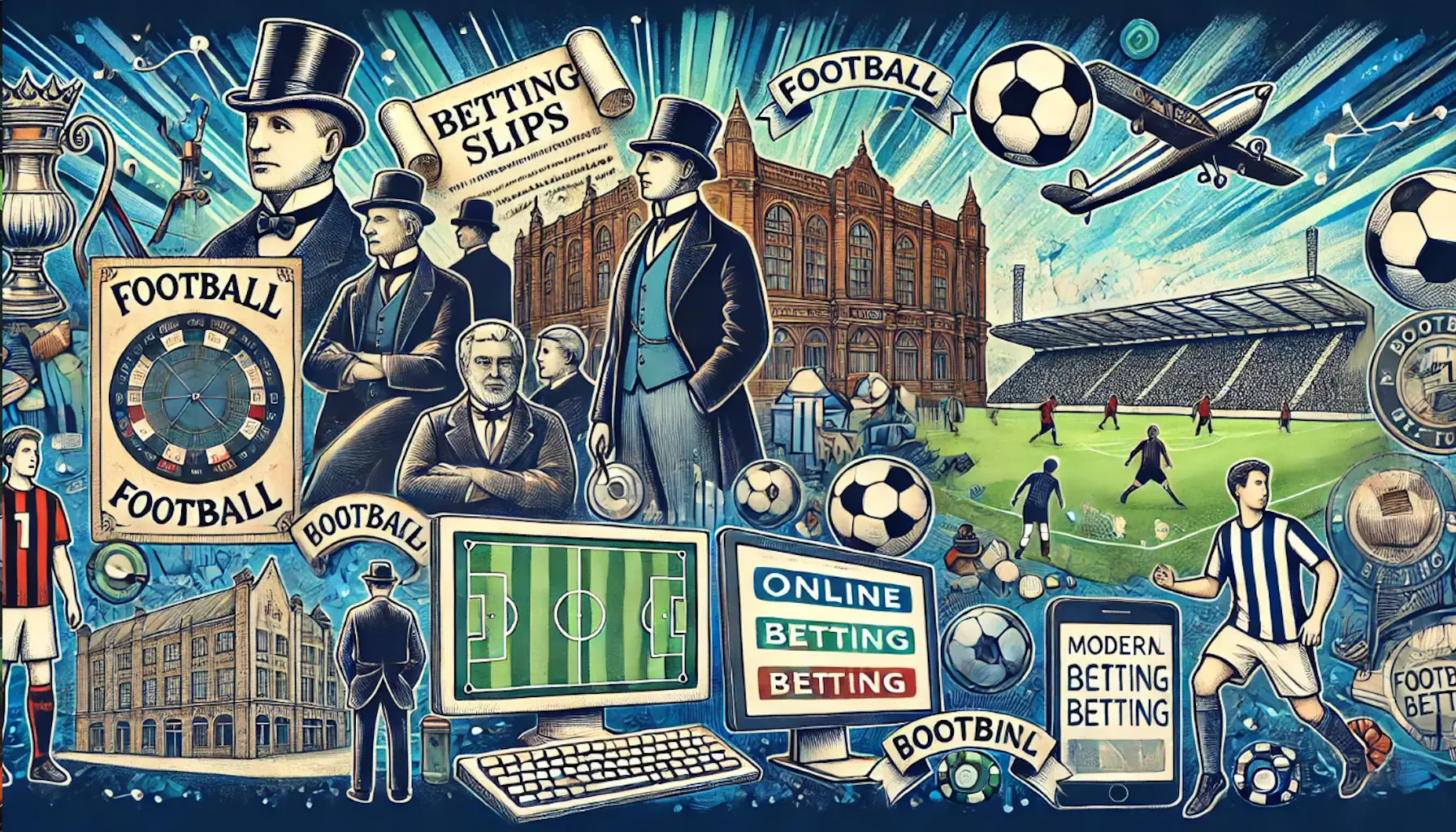Football Betting History
Football betting has a long and fascinating history that dates back to the early 20th century. The first organized football bets appeared in the United Kingdom, where football was already an immensely popular sport. Initially, betting was mostly illegal, which created numerous problems and conflicts.
Early 20th Century
In the early 20th century, football betting began to gain popularity among fans. Informal betting on football matches was common, with people placing wagers among friends or through local bookmakers operating outside the law. This period saw the rise of betting pools, where bettors would contribute to a common pool and the winner would take a share of the pot.
- Betting Pools: One of the earliest forms of organized football betting was the introduction of football pools in the 1920s. Bettors would predict the outcomes of matches, and those with the most correct predictions would share the prize money.
- Rise of Informal Betting: Before legalization, informal betting was rampant, with bookies operating clandestinely. This underground market was risky, both for the bettors and the bookmakers, due to the lack of regulation and protection.
Legalization and Regulation
In 1960, the British government took a significant step by legalizing betting shops through the Betting and Gaming Act of 1960. This move transformed the betting industry by bringing it into the legal and regulated framework.
- Betting and Gaming Act of 1960: This Act allowed for the establishment of licensed betting shops, creating a safer environment for bettors. It aimed to curb illegal betting activities and provide a regulated space for gambling.
- Growth of Betting Shops: Following legalization, betting shops quickly proliferated across the UK. By 1961, thousands of betting shops had opened, offering a legal and structured way to place bets on football and other sports.
- Impact on Public Perception: Legalization helped to normalize betting, making it a socially acceptable activity. The regulation also ensured that bettors had some level of protection against fraud and malpractice.
Expansion and Technological Advancements
With the development of technology, the football betting industry experienced significant changes, making betting more accessible and convenient.
- Introduction of Online Betting: The 1990s saw the emergence of the internet, which revolutionized the betting industry. Online bookmakers began to appear, allowing bettors to place wagers from the comfort of their homes. This development expanded the reach of betting, making it global.
- Live Betting and In-Play Markets: Technology enabled real-time betting, allowing bettors to place wagers during the course of a match. This increased the excitement and engagement of betting, as odds could change dynamically based on the events of the game.
- Mobile Betting: The advent of smartphones and mobile apps further transformed the betting landscape. Bettors could now place bets anytime and anywhere, leading to a significant increase in betting activity. Mobile apps also provided features like live streaming, cash-out options, and instant notifications.
The Modern Era
Today, football betting is an integral part of the sports industry, characterized by a wide range of betting options and advanced technologies that enhance the betting experience.
- Diverse Betting Markets: Modern bookmakers offer a plethora of betting options, including traditional match result bets, over/under goals, both teams to score (BTTS), and complex accumulators. Bettors can also wager on individual player performances, corners, cards, and many other aspects of the game.
- Advanced Analytical Tools: The use of big data and advanced analytics has become prevalent in football betting. Bettors and bookmakers alike use sophisticated algorithms and statistical models to predict outcomes and set odds. This has made betting more strategic and informed.
- Virtual Betting and Esports: The modern era has also seen the rise of virtual sports betting and esports betting. Virtual betting involves placing bets on computer-generated sports events, while esports betting focuses on competitive video gaming. Both have become popular among bettors looking for new and exciting opportunities.
- Responsible Gambling Initiatives: As the industry has grown, so has the focus on responsible gambling. Modern bookmakers provide tools and resources to help bettors manage their gambling activities, including deposit limits, self-exclusion options, and access to support services.
Global Popularity of Football Betting
Football betting has become popular not only in the UK but also worldwide. In countries like Spain, Italy, Germany, and Brazil, betting on football is a significant part of fan culture. In the United States, football betting is gaining popularity due to the growing interest in the sport and the legalization of sports betting in various states.
The Future of Football Betting
The football betting industry continues to evolve and adapt to new technologies and changes in legislation. Future developments are expected to include new types of bets, such as virtual football and esports betting. Additionally, advancements in analytical tools and the use of artificial intelligence will help bettors make more informed decisions and increase their chances of success.
Football betting has come a long way from its early 20th-century origins to the high-tech online platforms we see today. This evolution has made betting on football accessible, exciting, and potentially profitable for millions of people around the world.
